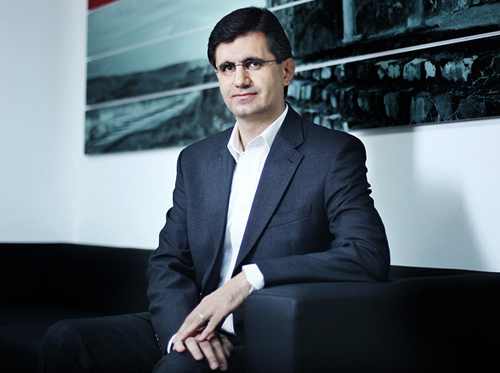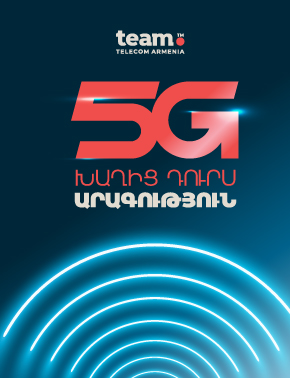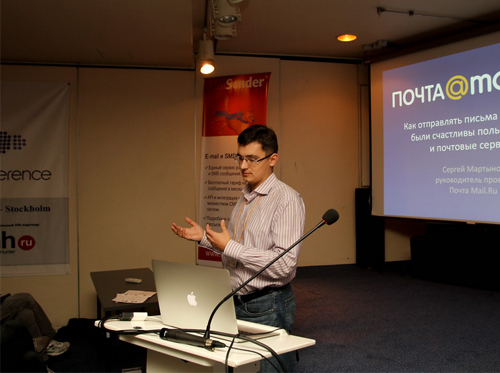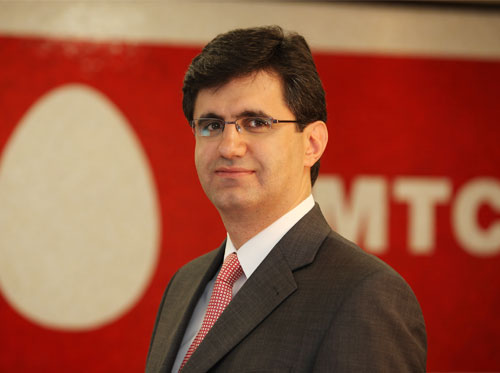-

VivaCell-MTS General Manager Ralph Yirikian
11:02 | 23.01.13 | Interviews | exclusive 156256
Ralph Yirikian: “Competition on the data transfer market will keep growing”
The Public Services Regulatory Commission (PSRC) decided to oblige the Armenian mobile operators to provide GSM coverage to all settlements of the country. At this moment, all the three mobile operators already provide over 95% coverage of Armenia’s populated areas, but there are still places, where the services of the operators are not available yet. The PSRC has chosen 18 rural areas and distributed the responsibilities of building networks between the three operators.
This is the first time in Armenia, when the expansion of operators’ mobile networks takes place not as a result of a competition but by the request of the state. Mediamax discussed the issue with VivaCell-MTS General Manager Ralph Yirikian.
- Mr. Yirikian is it correct to oblige the operators to build a network, and is the sphere ready to make additional investments in the mentioned areas to provide coverage?
- The initiative of the Commission is a modest but a good step. I think that the geopolitical location of our country equally obliges all the three operators to have 100% coverage. Among other issues, it is also a task of a national security.
Today, VivaCell-MTS has the widest network in Armenia, and there are places where only our network is available. And if for some reason our network gets damaged, these areas will be left without communication. So, all the operators should provide coverage in these and all populated areas. Maybe I'm not talking in favor of our company, but my words proceed from the interests of the state. I hope this initiative of the Commission will continue.
In connection with the decision on building a network in new areas, I would like to note that we are always ready and are guided by the strategy of improvement and expansion of the network, regardless of the Commission's decision. And one of the proofs is that in two of these villages - in Gors and Alavar, we already provided coverage last year. Be sure that after we finish working in “our” villages, we will not stop and will continue the works in order to provide 100% coverage. We are always guided by responsibility.
- You have highlighted the importance of providing 100% coverage in Armenia by all the three operators also in the context of introduction of Mobile Number Portability (MNP), which is planned to be introduced in Armenia on 1 January 2014. But I think the operators won’t manage to provide 100% coverage by that time, will they?
- MNP is a very good service, but I think, taking into consideration your question, at the initial stage it will not be introduced on the whole territory of Armenia, and will be available for some subscribers only. All three operators jointly with the PSRC have studied the experience of MNP introduction in Georgia, Spain and Belarus. In all three countries, the approaches and requirements were different. During this year, we must design a new system together that would be most convenient for Armenia.
- What do you think, how will the competition on the voice and Internet market of Armenia flow within the coming years?
- The prospects of future development of voice services are small. Today, Armenia’s mobile market is quite developed, even if compared with that of developed countries. However, we cannot say the same about the data transfer market: it has a huge development potential, and the competition will keep growing. We have witnessed a rapid development of the Internet market in recent years, and consumers should be pleased and satisfied with how fast the market develops.
- In December 2012, a new and a powerful competitor – Rostelecom - began providing services in the regions. What do you think, how will this fact change the competition in the regions? How will the wireless operators, VivaCell-MTS in particular, react on the expansion of wired operators?
- It is too early to assess the changes on the market yet, as Rostelecom has entered the Armenian retail Internet market quite recently. On the other hand, it is praiseworthy that we will witness as vigorous competition on the market of wired services, as we see between the wireless operators today. As for the competition among wired and wireless operators, I think it is important that everyone laid the emphasis on the productive use of his strengths.
- Let’s talk about the ICT sector in general: the other day, the representatives of the sector have voiced discontent about the tax policy. In particular, they mentioned that the 20% income tax makes the Armenian IT sector go offshore and that the new tax law has increased the burden on the IT sphere even more. In your opinion, to what extent is this policy logical, when the IT sector is considered a priority sector?
- I have always said that there doesn’t exist a full-fledged economy. All countries have different fiscal or other problems. The government’s reforms sometimes prove successful, sometimes not. But we must remember that there exists a civilized way of disputing decisions, as well as new proposals. As a result of a civilized pressure of the business some laws were also revised in the past.
Maybe, a 20% income tax is too high for the small and medium business, and I think it will be possible to achieve a change in the draft law.
On the whole, the ICT sector in Armenia is developing quite rapidly. Its share in the economy is increasing from year to year, and its voice must be taken into consideration.
Ruben Harutyunian talked to Ralph Yirikian.

17:29 | 24.09.25 | Articles
Jacopo Losso on Cross-Border Investments and Why Armenia Attracts Angels








